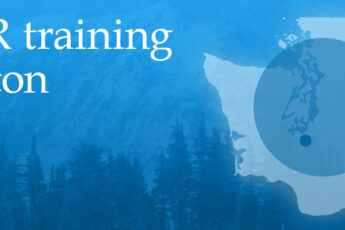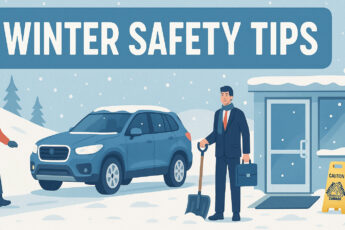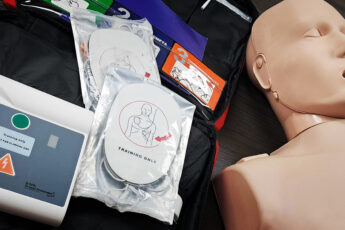Confused about CPR, BLS, or BBP training? Learn the differences, job requirements, and how ICM’s Red Cross–certified classes in WA fit your goals.
CPR is general lifesaving training, BLS is advanced CPR required for healthcare professionals, and BBP covers workplace safety around bloodborne pathogens. Employers, schools, and agencies specify which you need—ICM offers all three with American Red Cross certification.
Why Certification Choice Matters
- Different industries accept different certifications—choosing the wrong one could mean your card isn’t valid for work.
- Healthcare jobs often require BLS (Basic Life Support), while childcare, construction, and office jobs typically require CPR/AED.
- OSHA standards mandate BBP (Bloodborne Pathogens) training for workers who may be exposed to human blood or infectious materials.
- Picking the right certification saves time, money, and avoids repeating training.
What Employers Commonly Require
- Healthcare (Hospitals, Clinics, EMTs): Must have BLS certification—CPR alone usually isn’t enough.
- Schools, Childcare, Fitness Trainers, Office Staff: CPR/AED certification is widely required.
- Construction*, Janitorial**, Tattoo, and Lab Workers: BBP training is essential for OSHA compliance.
Certification Comparison
| Certification | Focus | Who Needs It | Accepted For |
|---|---|---|---|
| CPR/AED | Adult/child CPR & AED use | Teachers, coaches, office staff, childcare providers | Schools, businesses, community programs |
| BLS | Advanced CPR + team response | Nurses, doctors, EMTs, hospital staff | All healthcare & clinical roles |
| BBP | Bloodborne pathogen safety | Construction*, janitorial**, tattoo, lab workers | OSHA & workplace safety compliance |
* For construction workers, BBP training is specifically required for anyone designated to provide first aid or who handles biohazardous waste or otherwise is likely to have occupational exposure to blood or other potentially infectious materials while performing their job.
** For janitorial workers, BBP training is required for those whose job duties involve a “reasonable anticipation” of contact with blood or other potentially infectious materials (OPIM). This is particularly true for janitorial staff in healthcare settings or those tasked with cleaning up blood spills. In non-healthcare settings, the employer is responsible for determining which tasks present a risk of exposure.
FAQs
No. BLS is more advanced, designed for healthcare providers. CPR covers essential skills for workplace and community responders.
Usually not. Many free community classes don’t provide an employer-accepted certification card.
We offer American Red Cross–certified CPR, BLS, and BBP training, valid nationwide and trusted by employers.
How ICM Training Helps
- ✅ American Red Cross Certified: Cards are widely accepted across employers, schools, and agencies.
- ✅ Flexible Training Options: Come to our Lacey, WA office or we’ll train your staff at your location.
- ✅ Group & Individual Training: We charge per person; on-site sessions have a minimum, but in-house classes don’t.
- ✅ Covers All Needs: From CPR/AED to advanced BLS and OSHA-required BBP training.
Risks of Alternatives
- ❌ Wrong Certification: Taking CPR when your employer requires BLS = wasted time and money.
- ❌ Online-Only Courses: Most workplaces require hands-on training.
- ❌ Non-Certified Providers: Free or uncertified classes may not meet OSHA or employer standards.
Bottom line
Choose the certification that matches your career or workplace requirements—ICM offers Red Cross–certified CPR, BLS, and BBP training trusted across Washington State.
👉 Ready to certify? View our training options and schedule a class.
We can train your group on-site anywhere in Western Washington or host you at our Lacey, WA office.
Disclaimer: This information is for educational purposes only and is not intended as legal advice. For questions about your specific compliance obligations, please consult with a legal professional or the appropriate regulatory agency.







